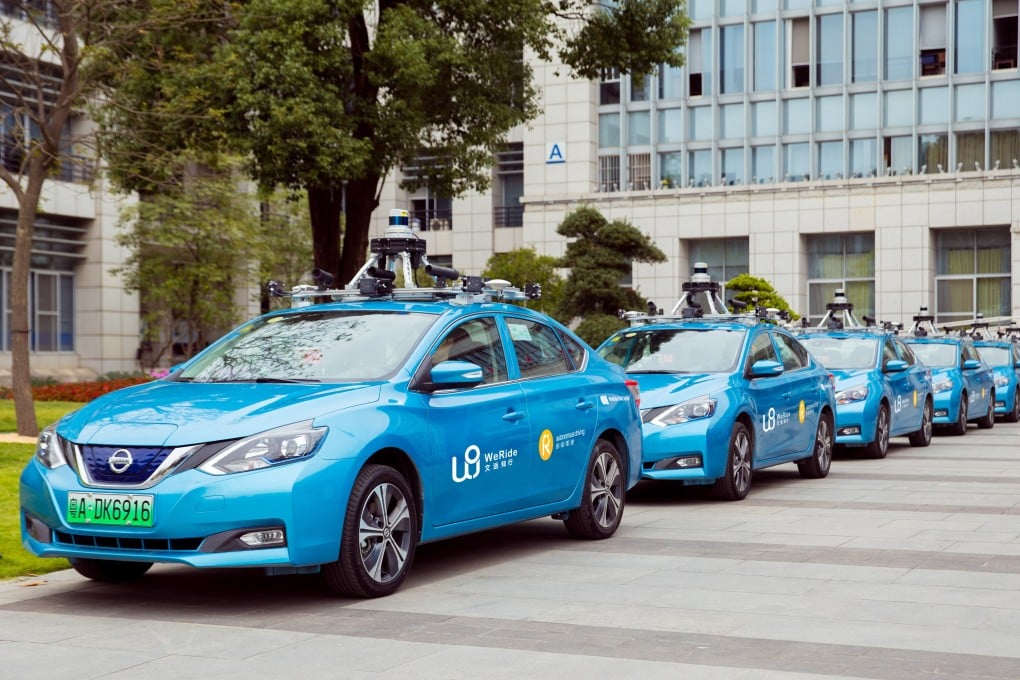Why 5G is considered an essential element in China’s autonomous driving road map
- Industry studies have concluded that 5G can reduce the high cost of on-board equipment by shifting some computing power off vehicle
- While the optimistic outlook sees large-scale adoption of autonomous cars by 2030, there is still no consensus on what the implementation will look like

When Chinese autonomous driving start-up WeRide conducted a remote driving test using 4G wireless networks two years ago, the results were underwhelming: the top speed reached within safety parameters was only 5km per hour.
To be sure, WeRide’s vision of a driverless future is not to move drivers from the front car seat to a remote control room, but 5G’s low latency is a major advantage if on-board systems cannot cope with unexpected road events and remote intervention is needed, Zhang Li, a telecommunications industry veteran and WeRide’s chief operating officer, told the South China Morning Post.
China Mobile, China Unicom and China Telecom – which together serve 1.6 billion mobile subscribers in the country – built nearly 200,000 5G base stations by the end of March out of an annual target of 500,000, data from China’s Ministry of Industry and Information Technology (MIIT) showed.
Next-generation 5G wireless networks are expected to transform a host of industries including online education, gaming, tele-health, remote working, live-streaming and e-commerce.